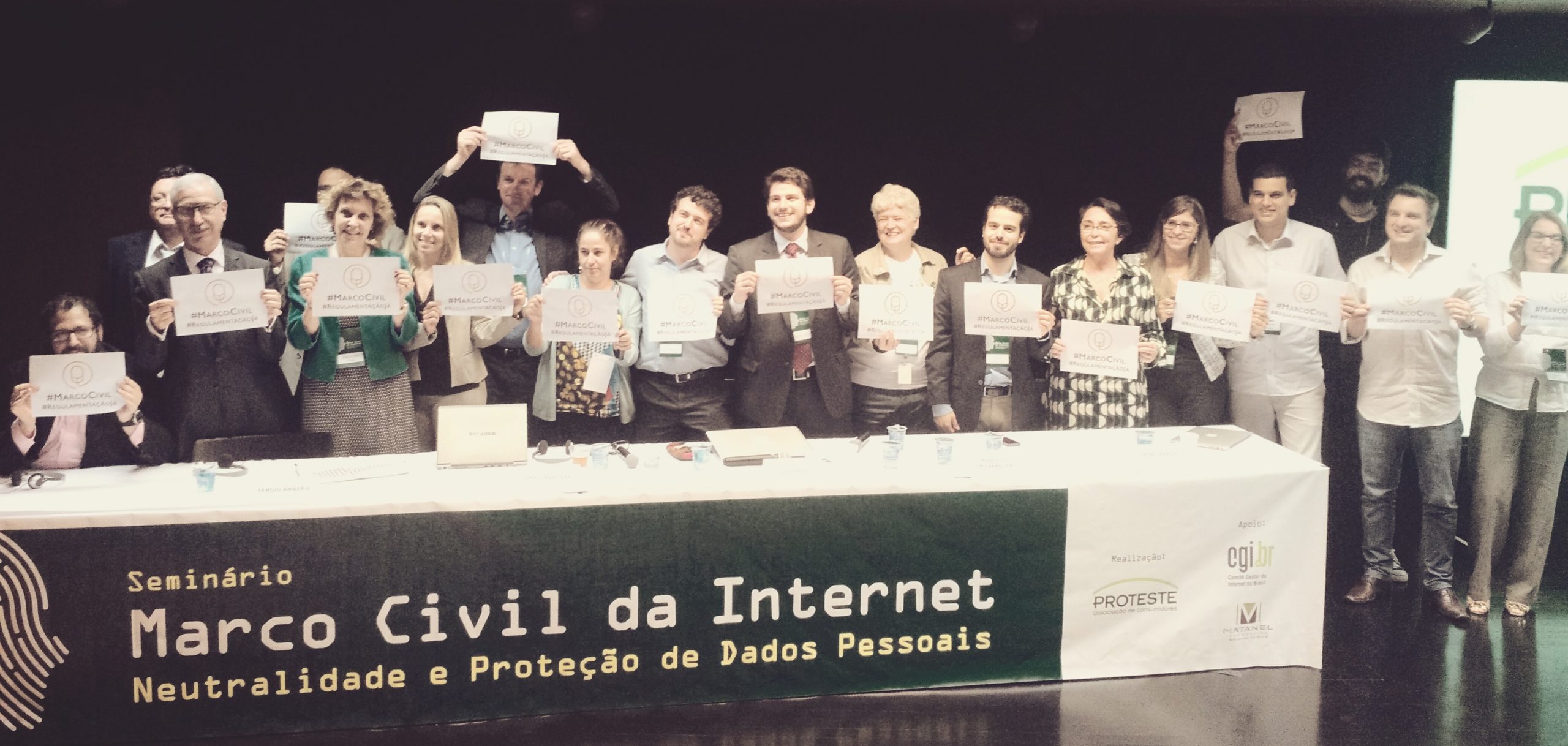
InternetLab Reports – Public Consultations No. 08
Public consultations about the Marco Civil da Internet regulatory decree of the and Data Protection draft bill are already open for two months.
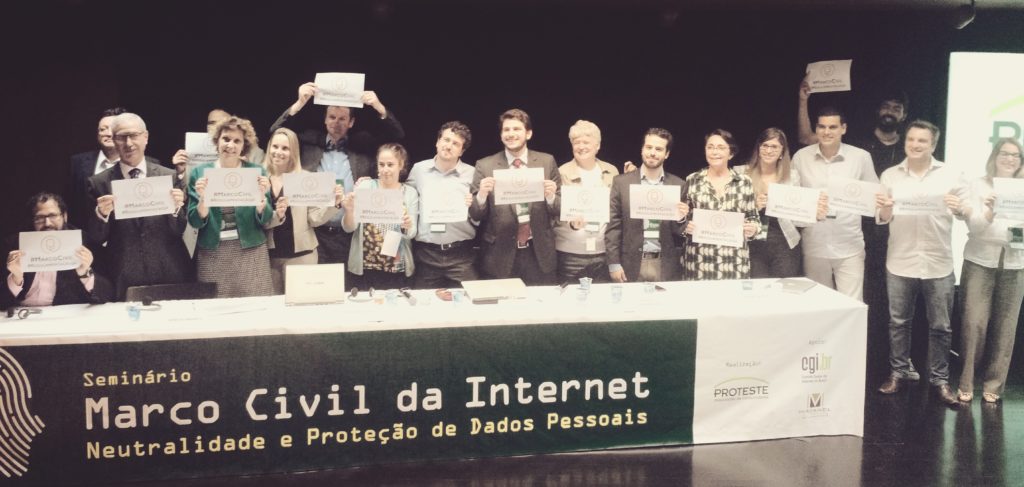
In this edition of the InternetLab Reports our focus will be provide an overview of the debates regarding the main topics and statistics of the most frequent subjects addressed in the debates.
General numbers and statistics
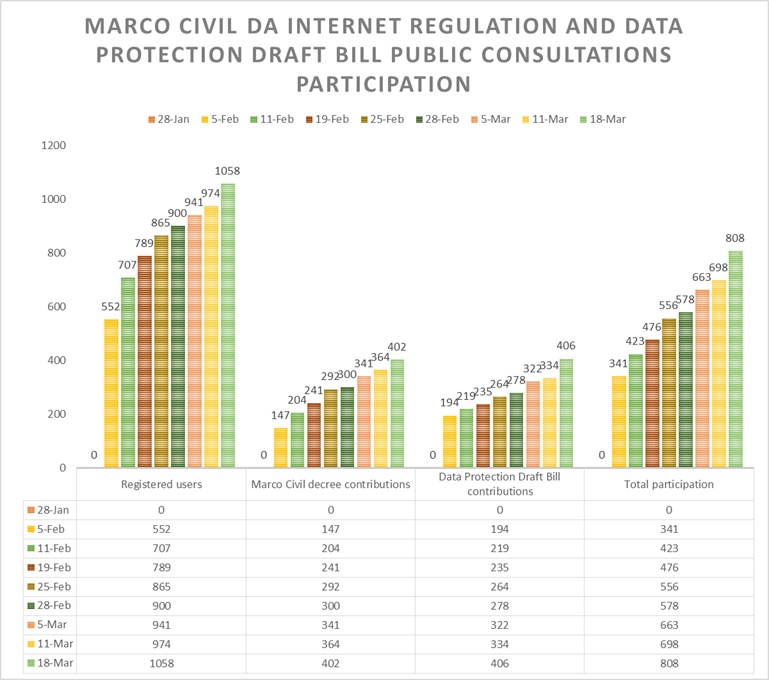
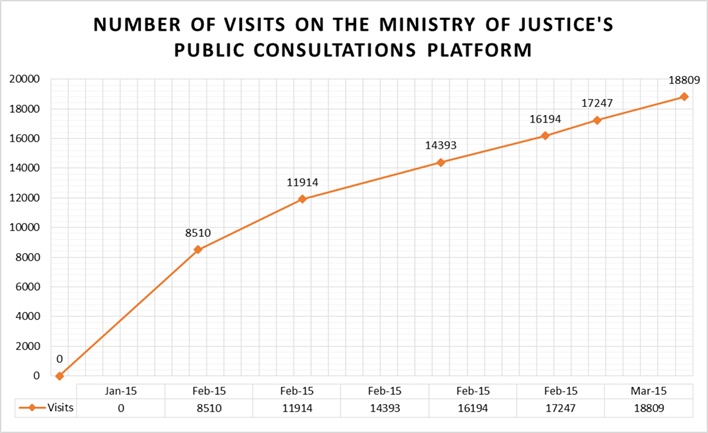
Main topics about network neutrality
The rule of net neutrality has been in effect since the approval of the Marco Civil da Internet. It now remains estabilish how it will be enforced and determine more precisely what are the exceptions to the rule. The debate about network neutrality is by far the most popular in the public consultation platform. Net neutrality was the issue discussed in 55% of the total of contributions made in the twenty busiest consultation topics.
Efficacy and Supervision of network neutrality
In this topic, the discussion is what is the best framework in the public sector to ensure the effectiveness and enforcement of net neutrality. The idea is to achieve a definition of a structure sufficient and independent to take care of that.
Exceptions to the rule of network neutrality
The Marco Civil da Internet stipulated two cases of exceptions to network neutrality: “technical requirements” and “emergency services”. In the regulatory decree these exceptions deserve be better detailed.
The controversy of mobile internet plans with free access to applications (called “zero rating” plans) is full of worries about competition, consumer protection and even privacy and freedom of expression. The “zero rating” plans hurts the net neutrality rule? In this topic, regulatory approaches from different countries regarding the issue are discussed, as well as short and long-term consequences of enabling these commercial agreements betwenn Internet service providers and application providers.
Main topics about privacy issues
Definition of “personal data” and “excessive personal data”
The Marco Civil da Internet makes several references to “personal data” without, however, define what this is. This definition links with the discussion about a Data Protection draft bill and is relevant because its consequences regarding the level of protection that this data will receive.
Definition about what is “account information”
Account information are also not defined in the Marco Civil da Internet although addressed in the law. Once again, the clear definition of what would be considered this kind of information is of vital importance for the protection of citizen privacy, specially because this data can be required by administrative authorities without prior court order.
The balance between privacy and authorities investigation capability is at stake when it comes to define what would be account information.
Main topics about data retention
Access to account information by authorities
In this topic the following questions are raised:
(i) what are the procedures for account information request by administrative authorities?
(ii) which authorities are competent to request information?
(iii) do users have the right to be informed about the request of their information? There are exceptions to this right?
Standard model for providing access to user’s logs
This topic discussion address the need for establish a standard model of providing application logs to authorities and third-parties. This type of standart enable the use of received data and put limits that could protect user privacy. Furthermore, the standart favour communication between authorities and companies.
Maximum length of data retention
Marco Civil da Internet sets a mandatory lenght for data retention of application and connection logs. The law also establishes the possibility of the authorities ask for a longer period of retention.
In this topic, it is discussed the need of defining a maximum lenght for retention to prevent authorities abuse of power.
Other important topics
Definition of Internet Service Provider
The Marco Civil da Internet regulate several activities performed by Internet service providers (ISPs). This topic discusses the need to define what is an ISP to reduce dispute about law framing and enforcement.
Data Protection draft bill
The platform chosen to host the Data Protection draft bill public discussion is different from that chosen to discuss the regulatory decree of the Marco Civil da Internet. While the discussion of the decree is made in a forum-like platform, participants’ contributions to the draft bill are made directly in the text, inserted below each article.
This choice may have caused consequences on how people participated, giving too much light to the first articles, as seen in the chart below. What happens is that the participant needs scroll down to get to the final articles of the text. The sections most frequented by participants are those placed in the beggining of the draft bill: “scope and application” (Articles 1 to 4), “consent” (Articles 7 to 11), “principles” (Article 6) and “personal, anonymous and sensitive data “(articles 5, 12 and 13).
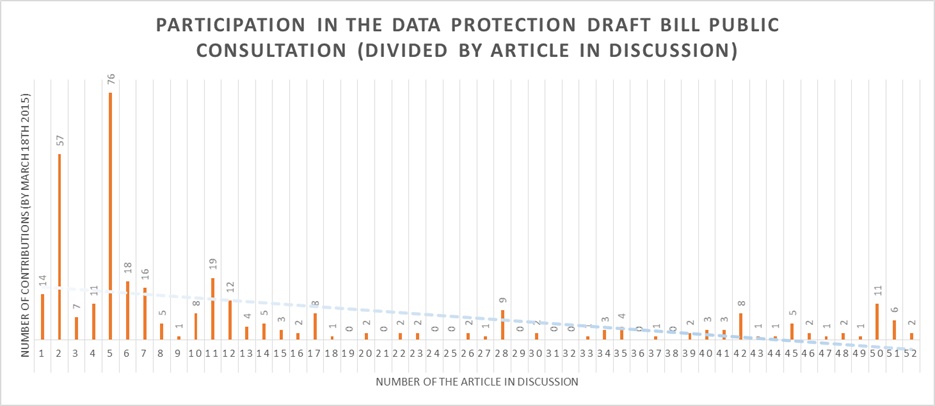
However, the platform has been improved during the consultation process. The visualization of comments got better: a small box turned in toan expanded space, which allowed more interaction between stakeholder contributions and bold comments.
Since its launch on 28 January, the public consultation evolved into a new stage. We can observe that constructive discussion hubs are developing: step-by-step arguments and interesting disputes are taking the place of sparse comments or individual questions.
Authors: Francisco Brito Cruz and Jonas Coelho Marchezan